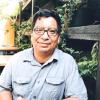History of Science, Technology and Medicine in Latin America
Please set your timezone at https://www.chstm.org/user
Consortium Respectful Behavior Policy
Participants at Consortium activities will treat each other with respect and consideration to create a collegial, inclusive, and professional environment that is free from any form of discrimination, harassment, or retaliation.
Participants will avoid any inappropriate actions or statements based on individual characteristics such as age, race, religion, ethnicity, sexual orientation, gender identity, gender expression, marital status, nationality, political affiliation, ability status, educational background, or any other characteristic protected by law. Disruptive or harassing behavior of any kind will not be tolerated. Harassment includes but is not limited to inappropriate or intimidating behavior and language, unwelcome jokes or comments, unwanted touching or attention, offensive images, photography without permission, and stalking.
Participants may send reports or concerns about violations of this policy to conduct@chstm.org.
Upcoming Meetings
There are no currently scheduled upcoming events.
Past Meetings
-
April 7, 2022
Latin American Energy Pasts/Futures
Join us April 7th @ 12 EST for a double book presentation with German Vergara, author of Fueling Mexico: Energy and Environment, 1850-1950, & Bret Gustafson, author of Bolivia in the Age of Gas. Introductions for both books are available in our Working Group's page until the day of the session.
-
March 3, 2022
Join us this Thursday, March 3rd at 12 EST for a conversation with Assoc. Professor Javiera Barandiaran about her book Lo que el estado neoliberal no sabe: Conflictos cientificos y politica ambiental en Chile.
-
February 3, 2022
DIALOGUES ON SCIENCE, MEDICINE & SLAVERY
Moderator: Leida Fernández Prieto (CSIC, Madrid).
Speakers:
Judith A. Carney (UCLA).
Pablo Gómez (UW-Madison).
-
December 2, 2021
Dear all,
Please join us next week, Thursday, December 2nd for the discussion "Latin America in the global histories of science & the environment" led by Prof. Eve Buckley (University of Delaware) with two leading scholars in the field: Prof. Lise Sedrez (Universidade Federal do Rio de Janeiro) and Prof. Stuart McCook (University of Guelph). We plan to discuss readings 1 & 2 and the presenters provided two additional readings that might be of interest to group members.
-
November 4, 2021
Join us for a lightning round of five presentations followed by questions and answers.
Julio Aguilar, University of California-Davis
Priscilla Cisternas, University of California-Davis
Adriana Guadarrama Sosa, Universidad de Granada
Andrei Guadarrama, Columbia University
Maritza Gomez, El Colegio de Mexico
-
October 7, 2021
Join us on Thursday, Oct. 7th @ 12 EST for a conversation about conducting research at the Linda Hall Library. Ben Gross, Vice President for Research and Scholarship, will give us a snapshot of what the Library has to offer followed by testimonies from former fellows Rocio Gomez, Justin Castro & Carlos Dimas.
-
May 27, 2021
Rethinking Center-Periphery
Presenters:
David Edgerton.
Gisela Mateos and Edna Suarez.
Mara Dicenta and Ezequiel Sosiuk.
-
April 22, 2021
Join us Thursday, April 22nd @2PM EST for (Re)Producing Medical Knowledge in Modern Latin America, a conversation on the history of medicine and the politics of reproductive knowledge and reproductive agency in Modern Latin America. Bianca Premo (Florida International University & Guggenheim Fellow) will present a talk entitled, "Carrión Avenue: Routes to the Scientific Truth about Peru’s Youngest Mother in the World.” This showcases her new research on the complicated story of Lina Medina, Peru’s youngest mother, who gave birth in 1939 at the age of five, and how a transnational medical community varyingly dismissed and objectified her case and the medical condition of precocious puberty. Elizabeth O’Brien (Johns Hopkins University) will offer a presentation entitled, “‘I’ll walk wherever I damn please’: Agency, Resistance, and the Patient’s Voice in Mexican Medical History,” which explores the experiential and embodied histories of reproductive surgery in Modern Mexico. The conversation will include a larger discussion about the place of Latin America in the History of Medicine.
-
March 25, 2021
Technology and the Environment in Latin America
Presenters: Sara B. Pritchard and Carl A. Zimring (authors of Technology and the Environment in History).
Discussants: David Pretel and Mikael Wolfe.
-
February 25, 2021
Engineering Latin America
Join us for a session with Ted Beatty, Israel Solares, Luz María Uhthoff, Cecilia Zuleta and Justin Castro to learn about their projects on engineers in the region's history.
Group Conveners
-

Diana J. Montaño
Diana J. Montaño is Assistant Professor at Washington University in St. Louis. Her teaching and research interests broadly include the construction of modern Latin American societies with a focus on technology and its relationship to nationalism, everyday life, and domesticity. Her first book Electrifying Mexico looks at how "electrifying agents" (businessmen, salespersons, inventors, doctors, housewives, maids, and domestic advisors) used electricity, both symbolically and physically, in the construction of a modern nation. Taking a user-based perspective, Dr. Montaño reconstructs how electricity was lived, consumed, rejected, and shaped in everyday life (https://utpress.utexas.edu/books/montano-electrifying-mexico). For her articles on the intersection of humor and class in streetcar accidents see History of Technology (https://tinyurl.com/5cr7r6hu -) and Technology's Stories (https://tinyurl.com/p4ucsmns). For her HAHR article on power theft in turn-of-the-century Mexico see https://tinyurl.com/9chy8s8v
-

David Pretel
David Pretel is professor of history and economic institutions at Autonomous University of Madrid. His research focuses on the history of export commodities, intellectual property rights and the entangled histories of technology, capitalism and the environment in the tropical world. His first book, "Institutionalising Patents in Nineteenth-Century Spain" (Palgrave Macmillan), examined the development of the Spanish patent system (1826–1902), providing a fundamental reassessment of its evolution in an international and imperial context. He is co-editor of the volumes "The Caribbean and the Atlantic World Economy: Circuits of Trade, Money and Knowledge, 1650-1914" and "Technology and Globalisation: Networks of Experts in World History". His recent publications include articles in the journals History of Science, Technology & Culture, Global Environment, History of Technology, Historia Mexicana, Business History, Artefact, Latin America in Economic History and Ayer.
His works, CV, and other details can be found on his website
-

José Ragas
José Ragas is an Assistant Professor at Instituto de Historia in Pontificia Universidad Católica de Chile, where he teaches courses related to STS and global history. Dr. Ragas holds a Ph.D. from the University of California, Davis. Previously to his appointment in Chile, he was a Mellon Postdoctoral Fellow in the Department of Science & Technology Studies at Cornell University and Lecturer in the Program in the History of Science and History of Medicine at Yale. His current book manuscript examines the emergence of a techno-social system engineered to capture and store personal data in Peru between 1820 and 1930. He is also interested in how, over the past two centuries, ordinary people have manipulated identification devices and challenged the restricted categories of personal identity imposed by policymakers in the Global South.